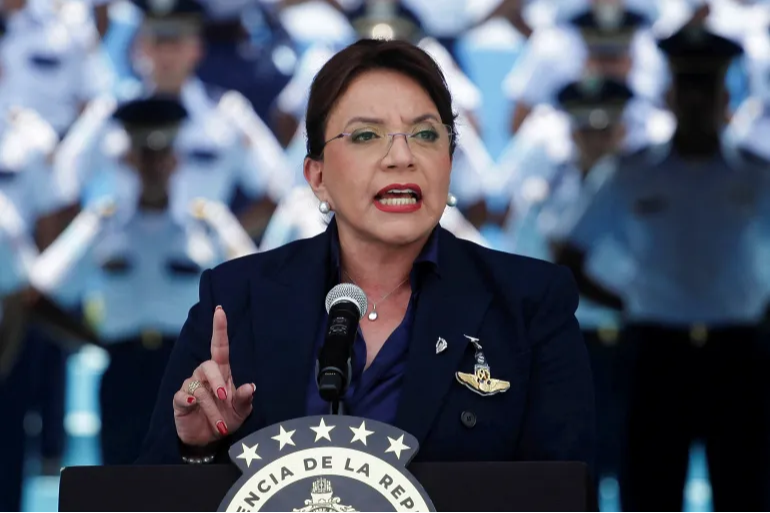Honduran President Xiomara Castro has announced her government has arrived at an agreement with the United States to extend an extradition treaty that she had previously pledged to discontinue.
Castro said on Tuesday that the agreement will include “safeguards” for Honduras’s sovereignty, after previously attacking the treaty as an example of the heavy-handed U.S. influence in Latin America.
“I have reached an agreement with the new United States administration so that the Extradition Treaty will continue with the necessary safeguards for the State of Honduras, guaranteeing its objective application,” Castro said in a social media post.
The treaty was otherwise set to expire in 10 days. But Castro’s decision comes amid U.S. calls to continue the agreement, which has been used to facilitate the extradition of figures such as former President Juan Orlando Hernandez and former police chief Juan Carlos Bonilla.
Hernandez, for example, was a staunch U.S. ally who came to power as a “law and order” figure. But in April 2022, he was extradited to the United States, where he was convicted last year of using his influence to protect powerful drug traffickers. He was sentenced to 45 years in prison.
Xiomara Castro’s government had said in August that it would allow the extradition treaty to expire, accusing the U.S. of intervening in Honduran politics and plotting a coup against her government and the armed forces.
The Honduran president’s husband, Manuel Zelaya, was himself a victim of a U.S.-supported action in 2009 in a right-wing military coup carried out with the backing of the business community.
Though the U.S. president at the time, Barack Obama, eventually denounced the coup as “not legal,” critics say his administration did little to stop it from unfolding.
A period of harsh repression followed, but Xiomara Castro, Zelaya’s wife, staged an electoral comeback and became president in January 2022.
Castro said on Tuesday that the new agreement includes guarantees for the “integrity of the armed forces” in Honduras.
While positioning herself as a leftist and a critic of U.S. meddling in the region, her government has had a collaborative relationship with the U.S. on questions such as law enforcement and immigration.
U.S. Ambassador Laura Dogu had recently criticised a meeting between Honduran officials and Venezuelan Defence Minister Vladimir Padrino Lopez, whom the U.S. has accused of supporting drug trafficking.


